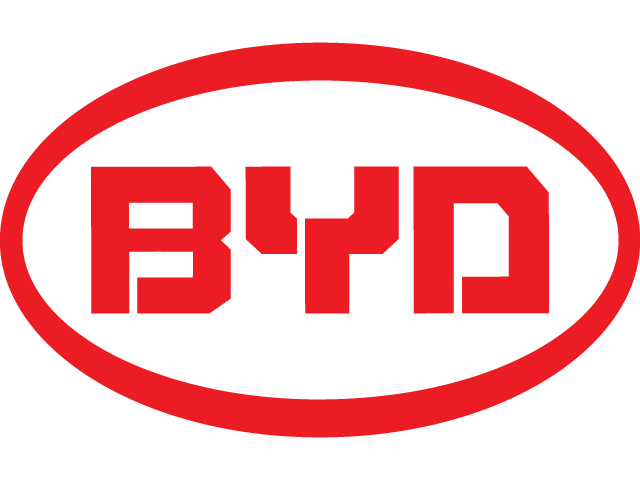In this article, we will take a closer look at the PESTEL analysis of the Chinese BYD Group. To this end, we will study political, economic, sociological, technological, ecological and legal characteristics.
BYD Group's key figures in 2025
BYD is a group of Chinese origin, founded in 1995. Initially, it was a manufacturer of electric batteries and renewable energy.
Today, it is one of the largest manufacturers of electric vehicles in the world. In 2024, the group will have a turnover of more than $107 billion. The number of electric vehicles sold worldwide is 4.27 million.
BYD is experiencing very significant growth worldwide, thanks to the strength of its technology and the frequency of its innovations.
The group has various manufacturing plants around the world, in China of course, but also in Europe and America. In 2024, the number of employees is around 1 million people, including more than 100000 engineers who devote their activities to research and development.
PESTEL analysis of BYD
Politics
In China, as in many other countries, governments are giving bonuses for consumers to buy electric vehicles.
In addition, China provides many subsidies to the manufacturer, to facilitate innovations. However, BYD has very close relations with Beijing, and this creates several tensions at the economic and political level.
In Europe, in 2023, Chinese vehicles are accused of benefiting from "dumping", thanks to Chinese aid. This is the case for BYD but not only, Nio and SAIC, its main competitors, are also targeted. The EU is therefore considering an increase in customs duties on the import of these vehicles, which are then necessarily less competitive. In France in particular, the reform concerning the ecological bonus has been reinforced, which also impacts BYD's sales. The same thing is already in place in the United States, because of the tensions between the United States and China. Thus, BYD decided to relocate factories all over the world, to circumvent this difficulty. It is doing likewise with the increase of customs in the US.
Economics
At the economic level, as we said above, electric vehicles are experiencing a real craze on the part of consumers. Growth in 2023 exceeds 35%, which is a record compared to previous years.
It should also be noted that BYD manufactures its own batteries, since it is initially a specialist in battery manufacturing, which greatly reduces its dependence on other companies, strengthening its leading position against its main competitors.
In addition, BYD remains dependent on the price of raw materials, which is highly volatile. Thus, the group is dependent on lithium, but also on cobalt or nickel. However, to maintain its competitiveness, BYD secures mines around the world, particularly in Africa and the United States, to prevent prices from rising too much.
It should also be noted that the global economic landscape is affected by various criteria and can therefore be unstable. Inflation and rising interest rates are impacting consumers' purchasing power and a fortiori sale of electric vehicles, which are more expensive than others, especially in new markets.
Sociocultural
Consumers around the world are becoming more and more sensitive to environmental issues. This trend is growing especially in Europe and North America.
In addition, it should also be noted that it is mainly the youngest consumers who are more concerned about the well-being of the planet and who are looking for more eco-responsible ways to consume. Today, more than 70% of them want to adopt cleaner technologies, even in the choice of their vehicle.
While electric vehicles are still expensive today, BYD is rather well positioned against the competition, with electric models costing around 10000 euros at the entry level. This facilitates access to the less well-off classes but who still want to take a step in favor of cleaner driving.
Consumers are still increasingly demanding, with a very high demand for connected vehicles, with digital screens and artificial intelligence on board.
Technological
BYD is one of the most technologically equipped companies, with more than 40,000 engineers, and more than 7% of the turnover invested in research and development.
BYD has real experience, with the development of its own hardware, chips, batteries or electric motors.
The batteries manufactured by the group enjoy an excellent reputation, they are safer, but also less expensive and last longer. They are also known to resist heat. All these claims have been tested in various ways.
Little by little, autonomous vehicles are emerging, with partnerships developed with Nvidia and Huawei. Over the years, these vehicles will be increasingly connected and equipped with more efficient artificial intelligence, making the driving experience ever better.
Ecological
BYD is part of a sector of activity that is not known to be the most environmentally friendly in the world. However, there are real efforts being made to reduce the carbon footprint, with factories that plan to be able to declare themselves carbon neutral.
BYD is in favor of recycling, closed circuits are set up on a regular basis to be able to participate in the reuse of the rarest metals. In addition, batteries can get a second life through specific channels.
Legal
At the legal level, BYD is subject to ever stricter regulations that are constantly changing. The group must therefore adapt its entire range to the new requirements of Europe, the United States and emerging countries. Indeed, recalls are more frequent in the event of non-compliance and the group will indeed fear for its reputation in the long term.
In addition, BYD is subject to very frequent audits aimed at verifying the working conditions of employees, especially in Chinese factories.
Conclusion
BYD is therefore a company that will continue to evolve in the years to come. Indeed, the group is very supported by the Chinese state, which allows it to have the necessary funds to continue to innovate over the years. In addition, BYD has a technological strength superior to that of its competitors and has been able to diversify to ensure its future and gain market share in other countries and in other areas of activity.
However, there are many challenges that remain to be met, which is why the group must continue to adapt to a constantly changing market.
https://www.google.com/search?client=safari&rls=en&q=BYD+strategy&ie=UTF-8&oe=UTF-8
https://www.autocango.com/blog-detail/BYD-2024-strategy-innovation










